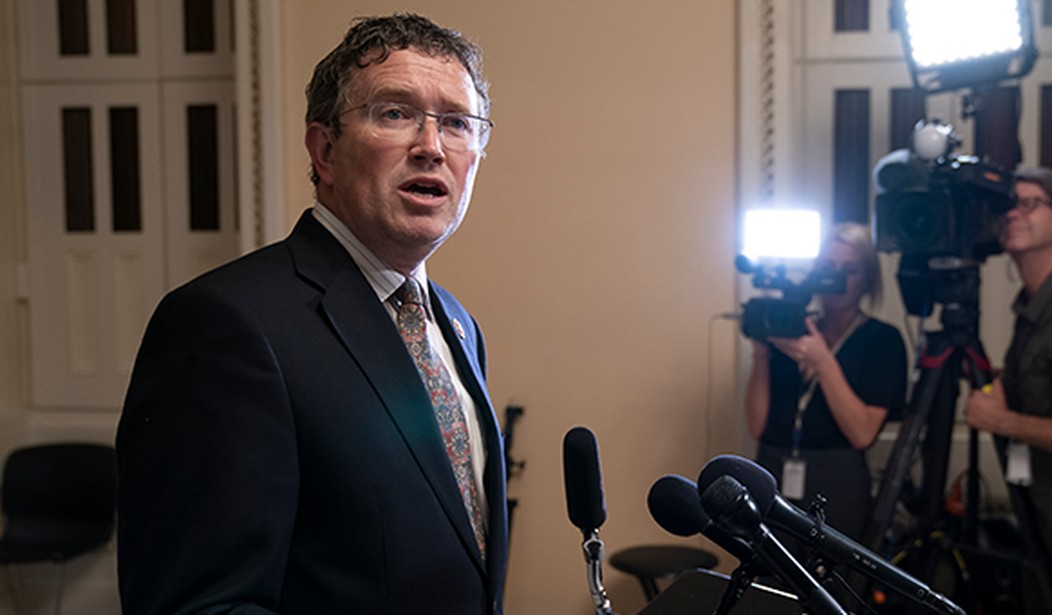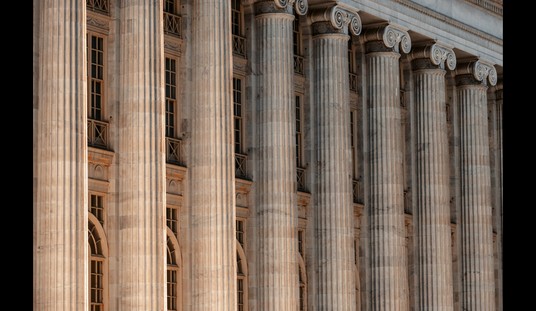Rep. Thomas Massie (R-KY) set the record straight during an exchange on the House floor with Olivia Troye, a former adviser to Vice President Mike Pence, who claimed that government-sponsored censorship was a “politically motivated fantasy detached from reality.”
During a hearing on the Weaponization of the Federal Government, Massie challenged Troye’s argument, pointing to a specific instance in which one of his posts on X, formerly known as Twitter, was flagged by the Stanford Internet Observatory, a government-funded entity. The social media company later censored the post.
Massie asked Troye if one of the conspiracy theories to which she was referring concluded that “government-funded agencies were flagging and trying to censor official congressional accounts on social media.”
“I would have no knowledge of that. I’m not aware of that,” Troye responded.
Massie turned to Michael Shellenberger, one of the individuals involved with the release of the Twitter Files, and referenced a tweet he had posted that was censored. Shellenberger noted that the tweet was one that the “Virality Project at Stanford Internet Observatory had flagged to Twitter for misinformation,” and that it was “censored in some way other way.”
He also noted that the project is funded by the state, at which point Massie asked if Troye believed that it should have been flagged. “Depends on whether you’re spreading inaccurate information,” she answered.
Massie pointed out that the tweet referenced a study from Israel showing that immunity to the COVID-19 virus “due to prior infection is the same as for the Pfizer vaccine.”
Troye doubled down, claiming that Massie’s tweet “was flagged for a reason,” to which the lawmaker retorted:
What's the reason? Is there ever a good reason to censor a member of Congress? This is my official account. This is not a personal account. This is not a campaign account. This is my communication with my constituents. By the way, I bring this up not to claim that members of Congress have more right to free speech than the general public. In fact, I don't even think the press or the media has more rights to the First Amendment than the general public. The general public has the same rights that we have. I bring this up to show, number one, that your testimony is false. But number two, if they can do this to a member of Congress's official account, they can do it to anybody.
Government-funded organizations were flagging official congressional accounts, including mine, to get posts censored on social media. If the government will attempt to censor a member of Congress's communications to his constituents, the government will censor anyone. pic.twitter.com/kvD3s9XlMv
— Thomas Massie (@RepThomasMassie) November 30, 2023
And therein lies the crux of the matter. Stanford Internet Observatory, along with a slew of other organizations, is being funded with taxpayer dollars to help social media companies censor content that contradicts the government’s line on the coronavirus and other issues. This problem came to light in full force when Elon Musk decided to release inside information showing how the company operated before he took over.
Despite the denials from Troye and others seeking to gaslight the public, it is abundantly clear that the government has been paying various entities to silence dissenting views on digital platforms, which is a brazen example of the government being weaponized for political purposes.













Join the conversation as a VIP Member